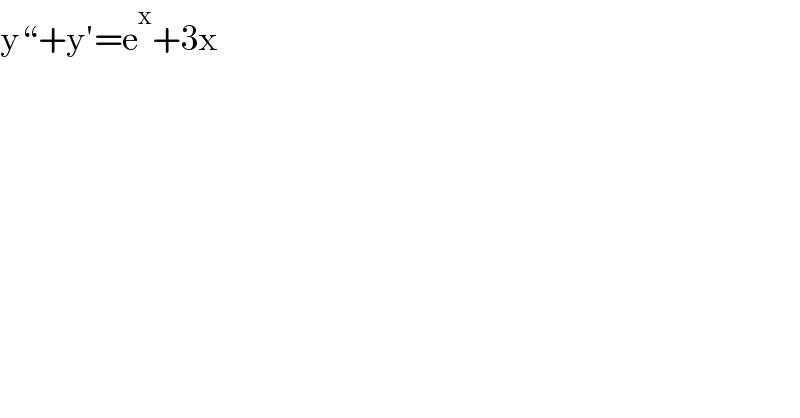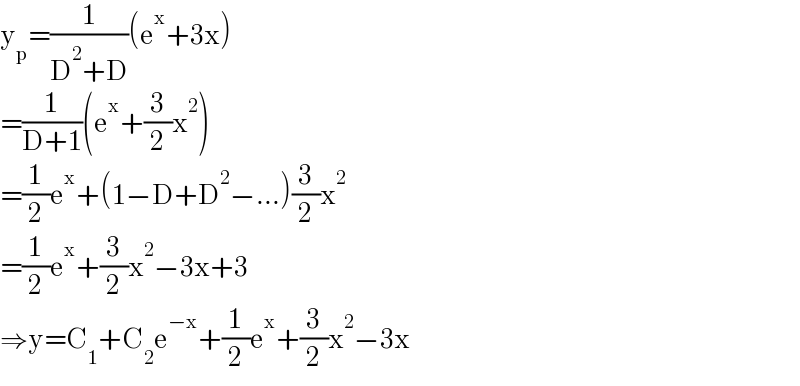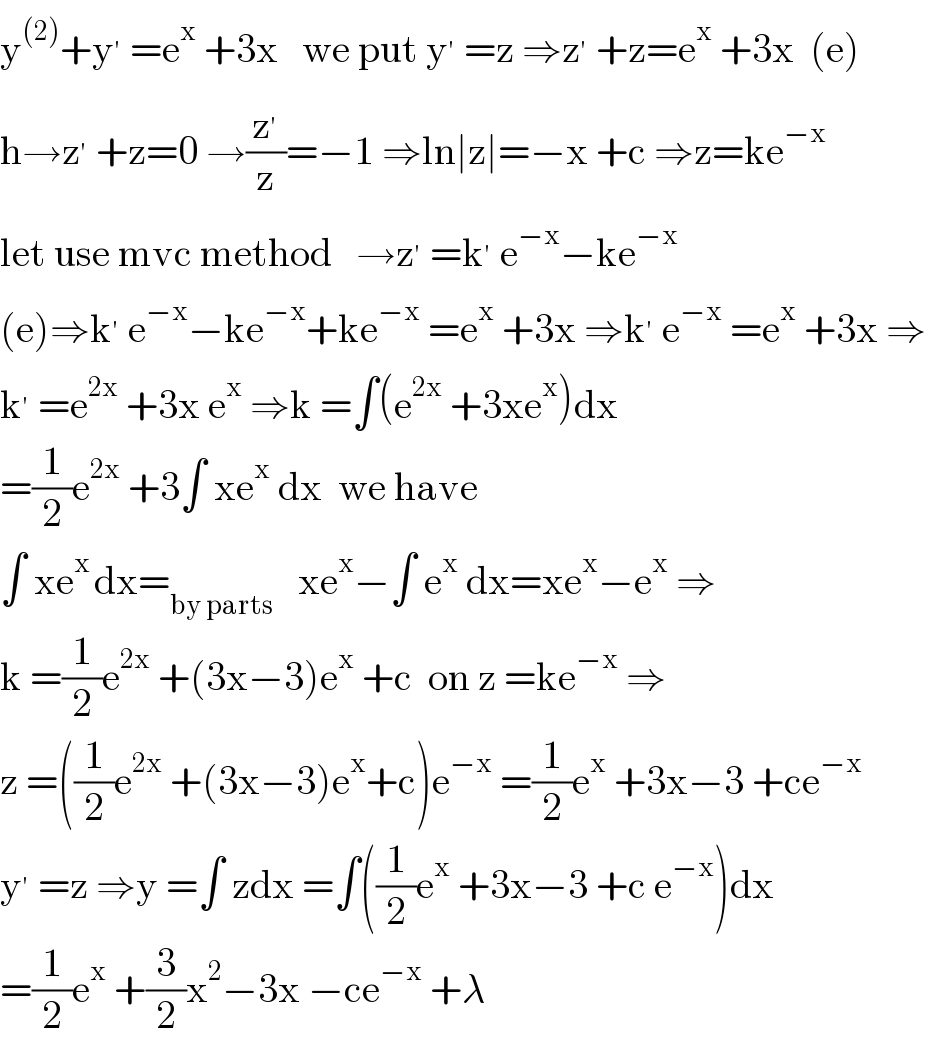
Question and Answers Forum
Question Number 156744 by joki last updated on 15/Oct/21

Answered by qaz last updated on 15/Oct/21

Commented by puissant last updated on 15/Oct/21

Answered by mathmax by abdo last updated on 16/Oct/21

| ||
Question and Answers Forum | ||
Question Number 156744 by joki last updated on 15/Oct/21 | ||
 | ||
Answered by qaz last updated on 15/Oct/21 | ||
 | ||
| ||
Commented by puissant last updated on 15/Oct/21 | ||
 | ||
Answered by mathmax by abdo last updated on 16/Oct/21 | ||
 | ||
| ||